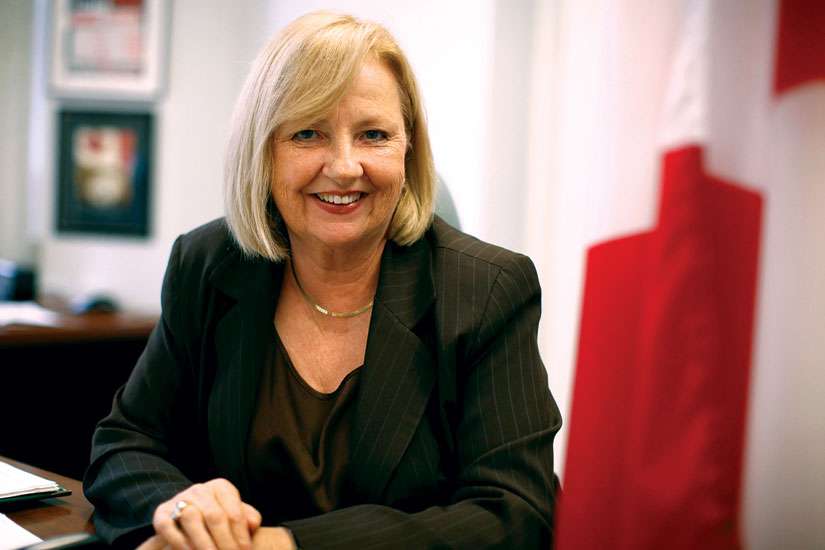“I can do more outside of Parliament,” said Smith in an interview from her Kildonan-St. Paul, Man., riding Jan. 19.
Smith is one of many pro-life and pro-family stalwarts among about two dozen Conservative MPs who have indicated they will not run in the election expected in October. Additionally, several NDP MPs who could be identified with the party’s social-gospel roots are also stepping down, including Ontario MP Joe Comartin, a key player in all-party efforts to initiate a national palliative care strategy, and B.C. MP Jean Crowder, a leading voice in all-party initiatives to advance anti-poverty strategies.
Smith is leaving Parliament to work full time for the Joy Smith Foundation. Her objective is to raise awareness of human trafficking in Canada, explain to communities how predators operate, spearhead efforts for training police officers and raise money for the NGOs that help survivors of human trafficking.
Despite making Canadian history by shepherding two anti-trafficking private member’s bills through Parliament — one of them during a minority Conservative Parliament — Smith believes the public is “relatively unaware that human trafficking is happening in Canada.
“New people are finding out about it every day,” she said. “I still run across people who just don’t know that human trafficking happens in Canada; they don’t understand what it is.”
Her decision to leave Parliament came after her input on the government’s anti-prostitution law, Bill C-36, helped it become law last December. Although it was a government bill, Smith’s expertise on prostitution and human trafficking influenced the passage of a prostitution law that, for the first time in Canada, criminalizes the purchase of sex by targeting the purchasers and the pimps.
Regarding the new prostitution law, Smith said “there’s a huge gap on the operational side” in the areas of public awareness and training.
Nowhere was this gap more apparent than in the reaction to Bill C-36 by some premiers and the mainstream media, with Ontario Premier Kathleen Wynne indicating she may not enforce the new law and mainstream media widely opposing criminalization.
“I pushed back on that very heavily,” Smith said. “It is up to every premier to uphold the law of the land. No premier can demand that police forces not uphold the law. It’s not an option.”
Other prominent Conservatives who will not seek re-election include Saskatchewan MP Maurice Vellacott, who co-chaired the Parliamentary Pro-Life Caucus for about a decade; Manitoba MP Rod Bruinooge, who succeeded Vellacott as caucus chair; and Alberta MP Brian Storseth, who pushed through a private member’s bill axing the controversial “thought crimes” section 13 of the Canadian Human Rights Act.
Additionally, several former Reform MPs who remained staunchly pro-life and pro-family are not running again. They include Saskatchewan MP Garry Breitkreuz and B.C. MPs Dick Harris, James Lunney and Colin Mayes.
Campaign Life Coalition president Jim Hughes said he was “very disappointed that the wave of fresh air that came into the House with the Reform Party was now dissipating.”
Many of the Reformers came to Ottawa in the 1997 election.
“When we got together the first time, these people actually intended to represent the voters in their ridings,” Hughes said. “I was really applauding the whole thing.”
Some of the newer MPs who are stepping down, such as B.C. MP Russ Hiebert, have also been staunchly pro-life.
The difficulty is ensuring the people who run in their place are as dedicated and pro-life as they were, Hughes said.
Liberal Leader Justin Trudeau announced last year that his party would bar candidates who do not support a woman’s “right” to abortion, and he would end the long-standing tradition of allowing conscience votes on moral issues.
Though several Conservative pro-life MPs intend to run again, the Parliamentary Pro-Life Caucus can no longer claim to represent all-parties, Hughes said.
“That’s bad for Canadian democracy, and bad for average voters having their voices heard. It remains to be seen how that will affect the political landscape.”


